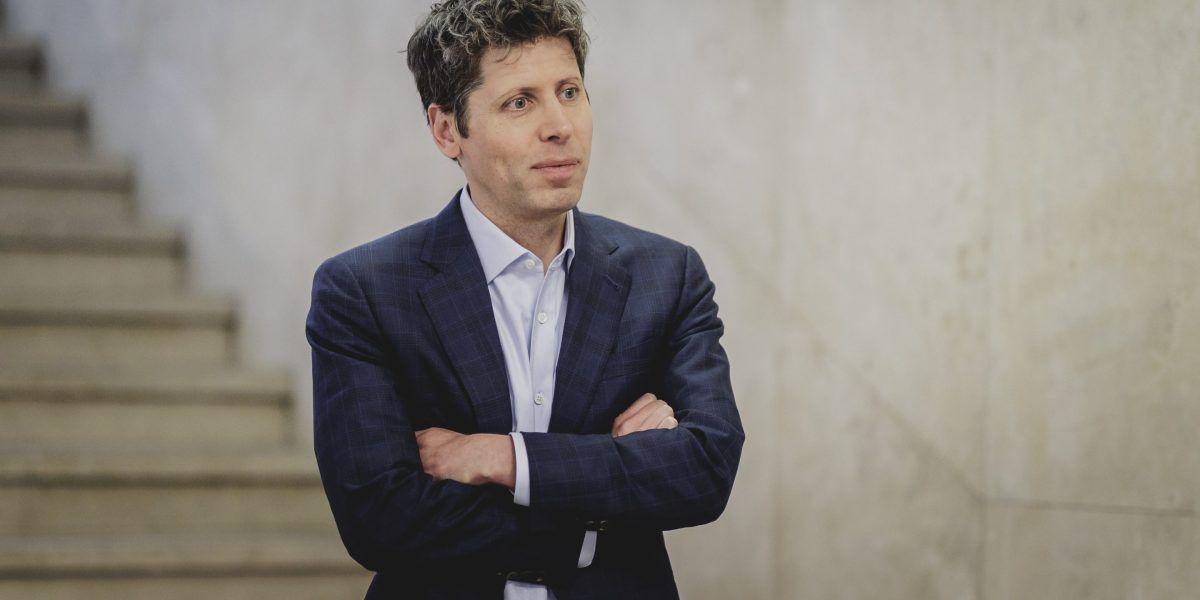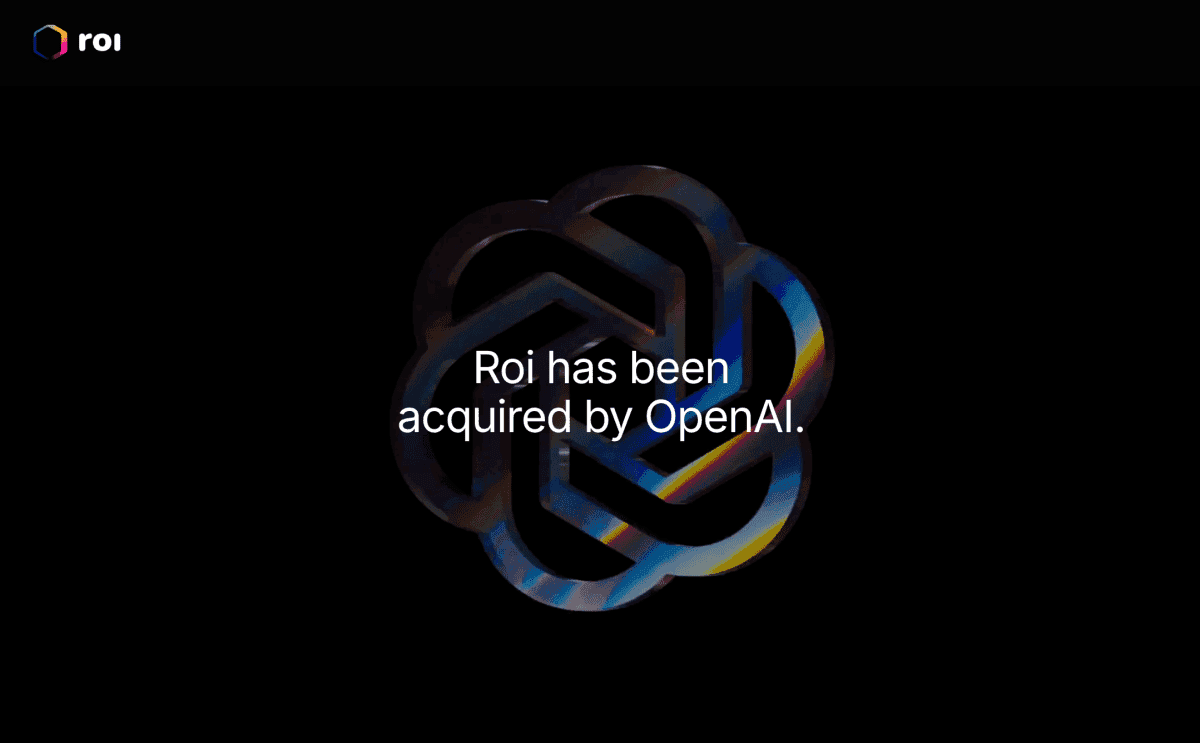Rogo Secures $50 Million in Funding to Develop AI-Powered Investment Banking Tools
2 Sources
2 Sources
[1]
Thrive backs AI start-up taking on investment bankers
An AI start-up behind a chatbot that replicates an investment banker has raised $50mn from a group of investors led by Thrive Capital, increasing the four-year-old company's valuation from $80mn to $350mn. Rogo secured the capital from Joshua Kushner's venture capital firm, a key backer of OpenAI, as part of a series B financing just seven months after the company's previous $18.5mn fundraising round closed. The new investment into Rogo reflects Thrive's belief that specialised AI tools can still compete with generalist models such as OpenAI in certain domains. Sophisticated large language models are closing in on complex, legally sensitive white-collar tasks that could undercut employment in high-wage industries such as finance, law and science. Rogo was developed by a former analyst at Lazard, Gabriel Stengel, with the aim of automating some of the laborious tasks done by junior investment bankers. "I thought, hey, you could make a real AI analyst for Wall Street that can help augment senior bankers, but also really help automate a lot of the grunt work that junior bankers are doing," Stengel told the Financial Times. Rogo could quickly understand a company's market position and competitors as well as pull basic valuation comparisons, he said, and had been deployed at investment banks Moelis and Nomura as well as investment firms Tiger Global and GTCR. Banks and trading firms are already engaged in a technology arms race, with multibillion-dollar technology budgets to deploy in developing their own applications. JPMorgan Chase has rolled out an in-house large language model for employees, while private capital firms have developed their own AI models for assessing buyouts. Rogo also faces competition from other start-ups such as Mosaic, which is able to calculate deal returns from a few quick manual inputs. Stengel, who worked as a junior analyst covering biotech and pharma companies, said he would spend days triangulating research reports and filings with the US Securities and Exchange Commission to calculate a "peak sales" valuation ratio, a task that now takes Rogo minutes. "The role of the analyst is probably going to have to shift because sitting down and doing models all day I don't think is going to be the future," said one junior banker who has regularly used the product. The company, which employs engineers as well as former investment bankers, believes it can train models to eventually offer insights equal to those of senior bankers. "We're training reasoning models that think like investors and investment bankers . . . it is a little scary because you run these big experiments to see, hey, can we be as thoughtful as a partner at Tiger Global? Can we be as thoughtful as Blair Effron at Centerview?" said Stengel, referring to the highly regarded Wall Street executive. The banking industry is split on the likely impact of AI tools such as Rogo. One view is that the efficiency gains it brings will mean Wall Street banks will be able to cut the number of entry-level positions, while others believe they will free up banks to work on more deals for which they will need more people. "Banks that adopt AI will win more deals, will generate more revenue and will be higher revenue per employee and they'll want more bankers," Stengel said. "The only way to get deal-revenue-generating bankers is to train them and create MDs. And you can only do that if you have junior bankers who rise to that level."
[2]
Rogo Raises $50 Million to Develop AI-Powered Investment Banker | PYMNTS.com
The company's Series B round brings Rogo's total funding to $75 million, according to a Wednesday (April 30) press release. The company will use the funding to boost investment in financial reasoning models and autonomous AI agents. "Finance is about more than efficiency -- it's about seeing what others cannot," the release said. "Wall Street's best analysts pair hard data with creativity and ruthless clarity of thought. That's the bar we've set for Rogo." While the company is still working on its "ultimate vision of a true AI analyst," clients are seeing results, per the release. Among them is Patrice Maffre, international head of investment banking at Nomura, who said in the release that Rogo "enables our teams to analyze market data and identify opportunities with unprecedented speed and precision, while allowing our bankers to focus more deeply on client relationships and strategic advisory." The banking sector is divided on the potential impact of tools like Rogo's, the Financial Times reported Wednesday. Some think the added efficiency will lead Wall Street banks to reduce their entry-level positions. Others say these products will give banks more freedom to work on more deals, which will mean hiring more people. "Banks that adopt AI will win more deals, will generate more revenue and will be higher revenue per employee and they'll want more bankers," Rogo founder Gabriel Stengel said, per the report. "The only way to get deal-revenue-generating bankers is to train them and create MDs. And you can only do that if you have junior bankers who rise to that level." PYMNTS explored the use of AI in helping banks combat fraud Wednesday in a conversation with Eric Stratman, senior director of analytics and insights at ValidiFI. "A lot of the buildout is at the front end of the transaction, and once you implement that solution, it provides those answers seamlessly in the transaction," he said. "The machine learning and AI algorithms can analyze hundreds of thousands of transactional patterns that can then be used to mitigate fraudulent activities" so that clients can OK more transactions with a better sense of the security of the transaction, he added.
Share
Share
Copy Link
Rogo, an AI startup developing tools to automate investment banking tasks, has raised $50 million in a Series B round led by Thrive Capital. The funding will be used to advance its AI models for financial analysis and decision-making.

Rogo Secures $50 Million in Series B Funding
Rogo, an AI startup developing tools to automate investment banking tasks, has raised $50 million in a Series B funding round led by Thrive Capital. This investment has catapulted the four-year-old company's valuation from $80 million to $350 million, marking a significant milestone in its growth trajectory
1
.The Technology Behind Rogo
Rogo's AI-powered chatbot is designed to replicate the functions of an investment banker. Developed by Gabriel Stengel, a former analyst at Lazard, the tool aims to automate laborious tasks typically performed by junior investment bankers. The AI can quickly analyze a company's market position, identify competitors, and generate basic valuation comparisons
1
.Adoption and Impact in the Financial Sector
The AI tool has already been deployed at prominent financial institutions, including investment banks Moelis and Nomura, as well as investment firms Tiger Global and GTCR
1
. Patrice Maffre, international head of investment banking at Nomura, praised Rogo's ability to "analyze market data and identify opportunities with unprecedented speed and precision"2
.Future Development and Vision
With the new funding, Rogo plans to boost investment in financial reasoning models and autonomous AI agents. The company's ultimate vision is to create a "true AI analyst" capable of offering insights comparable to those of senior bankers
2
. Stengel expressed the ambitious goal of training reasoning models that can think like top investors and investment bankers1
.AI's Impact on Investment Banking
The banking industry is divided on the potential impact of AI tools like Rogo. Some believe it will lead to a reduction in entry-level positions, while others argue it will enable banks to handle more deals, potentially increasing the demand for bankers
1
2
.Related Stories
Competition and Industry Trends
Rogo faces competition from other startups like Mosaic, as well as from established banks developing their own AI solutions. JPMorgan Chase, for instance, has already rolled out an in-house large language model for employees
1
. This reflects a broader trend of financial institutions engaging in a technology arms race, with substantial budgets allocated for developing AI applications.Broader Implications for White-Collar Jobs
The development of sophisticated large language models is increasingly encroaching on complex, legally sensitive white-collar tasks. This trend could potentially disrupt employment in high-wage industries such as finance, law, and science
1
. However, proponents argue that AI tools will augment rather than replace human expertise, allowing professionals to focus on higher-value tasks and client relationships2
.1
2
References
Summarized by
Navi
Related Stories
OpenAI's Project Mercury: AI Poised to Revolutionize Entry-Level Banking Tasks
21 Oct 2025•Business and Economy

Model ML Secures $75 Million Series A to Automate Investment Banking Workflows
24 Nov 2025•Startups

EnFi Secures $15 Million to Deploy Agentic AI for Credit Analysis at Regional Banks
04 Feb 2026•Startups

Recent Highlights
1
Google Gemini 3.1 Pro doubles reasoning score, beats rivals in key AI benchmarks
Technology

2
Meta strikes up to $100 billion AI chips deal with AMD, could acquire 10% stake in chipmaker
Technology

3
Pentagon threatens Anthropic with supply chain risk label over AI safeguards for military use
Policy and Regulation





